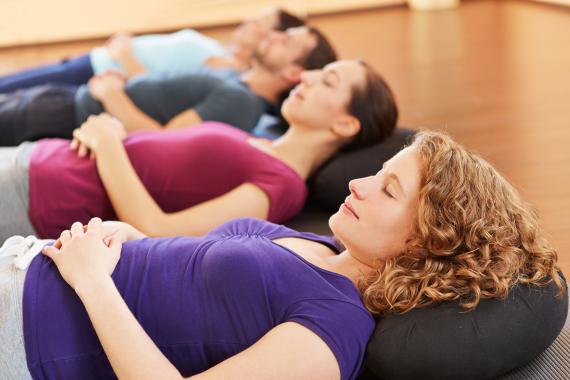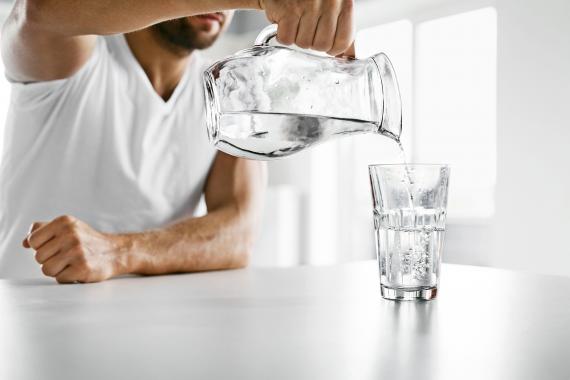Being carefree at social events
For people with IBD, social events can cause worries about what to eat and drink and how to avoid having a flare-up.
Here are some top tips so that you can feel as relaxed and carefree as anyone else when you get up on that dance floor.
The before party
Rest before going out is likely to be the right thing to do for most people with IBD. How much rest you’ll need will depend on how you’re feeling nearer the time, but resting the day before the event may be a good plan.
Which party?
You may need to think carefully about accepting invitations to go out, particularly if there’s a lot going on around that same time. You may not feel up to saying ‘yes’ to all of them. When making up your mind what to do, you may decide to go to the party that’s happening somewhere you’re already familiar with; or the one closest to home; or perhaps the one that doesn’t involve walking too far; or the one with the most accessible toilets; or to the party where the other guests already know about your IBD.
Connect with others – talking to your hosts
If you don’t know the people hosting the event, you may want to get in touch with them beforehand and talk about what’s planned, where the toilets are, and generally to let them know that you may need to excuse yourself from time to time or leave the party early.
Dropping in – coming by but not staying long
This can be a good plan, particularly if you’re worried you may somehow upset your hosts by declining their invitation yet again.
Pre-load with food not alcohol
Avoiding foodstuffs you know from experience can trigger a relapse is important. So unless you know for certain that when you get to the event there will be food that you can eat, eating before you go is likely to be a good idea. Alternatively, depending on the event, you could take your own food. In either case you can be sure you’re eating food that won’t trigger a flare.
Don’t skip your medication
Treatment of ulcerative colitis and Crohn’s disease has to be taken regularly to prevent flare-ups and maintain remission of the condition. Although it can be hard to take medication every day, the risk of a relapse can be five times higher if you stop taking the medicine regularly.1
Stress management
Research published in 2015 showed that people with IBD are more than twice as likely to feel anxious than people who don’t have the condition.2 Thinking about going out, particularly if you’re not got much time to prepare and plan for the event, may worry you. Finding ways of trying to manage this anxiety will be personal to you. If you haven’t yet got a strategy in place that you find helps, for example relaxation classes or meditation, then your IBD nurse or local support group should be able to offer some support.

The party
Other people
As you are probably only too aware, other people know little about IBD and may confuse it with IBS. They may also look at you and think that you look well. Talking to other people about IBD may not be your first topic of conversation, but if you do so then most people will begin to understand why you have to do some of the things you do and they don’t have to.
Alcohol and partying sober
Worried about the effect alcohol has on the health of all their citizens, many health agencies around the world have published guidelines about the consumption of alcohol. Limiting how much you drink is therefore advice given to everyone.
Although you are able to drink alcohol when you have IBD, you need to be sensible about it. Speak with your IBD health team about what is reasonable in your situation, or take a look at your national guidelines for more information.
Trigger foods
Trigger foods that cause a flare up vary from person to person; the key thing is knowing what foods affect you poorly and then to avoid them – even at parties. If you don’t know what these foods are keeping a food diary will help you to identify them.
Toilets
Knowing exactly where to find the nearest clean and suitable toilet is important and it may be the first thing to discover when you arrive at a venue. Checking that the venue has an easily accessible toilet before you accept the invitation is also a good idea.
Water
Diarrhoea increases the risk of dehydration and kidney problems. Initially, dehydration and salt loss create a feeling of weakness. If your fluid intake does not keep up with diarrhoea, your kidney function may be affected. Patients with Crohn’s disease can have an increased incidence of kidney stones. For these reasons, people with IBD should consume ample fluids, especially in warm weather when skin losses of salt and water may be high.

Other essential supplies – your emergency pack
You may find it useful always to carry around an emergency pack. This might include:
- Your prescribed medicine
- Toilet paper
- A sealable plastic bag
- Disposable gloves
- Soap and hand sanitizer
- Flushable moistened wipes
- Extra underwear
The after party
Fatigue and recovery time
Partying hard leaves many people tired and a ‘good night’s sleep’ may be enough to guarantee recovery. However, people with IBD may experience fatigue that a ‘good night’s sleep’ won’t so easily manage. So if you decide to party then you also need to plan time to recover – you may not feel able to do very much the following day.
References:
1: Kane, S., Huo, D., Aikens, J., and Hanauer, S. (2003). Medication nonadherence and the outcomes of patients with quiescent ulcerative colitis. Am. J. Med. 114, 39–43.
2: Fuller-Thomson E, Lateef R, Sulman J. Robust Association Between Inflammatory Bowel Disease and Generalized Anxiety Disorder: Findings from a Nationally Representative Canadian Study. Inflamm Bowel Dis. 2015 Oct;21(10):2341-8. doi: 10.1097/MIB.0000000000000518.

